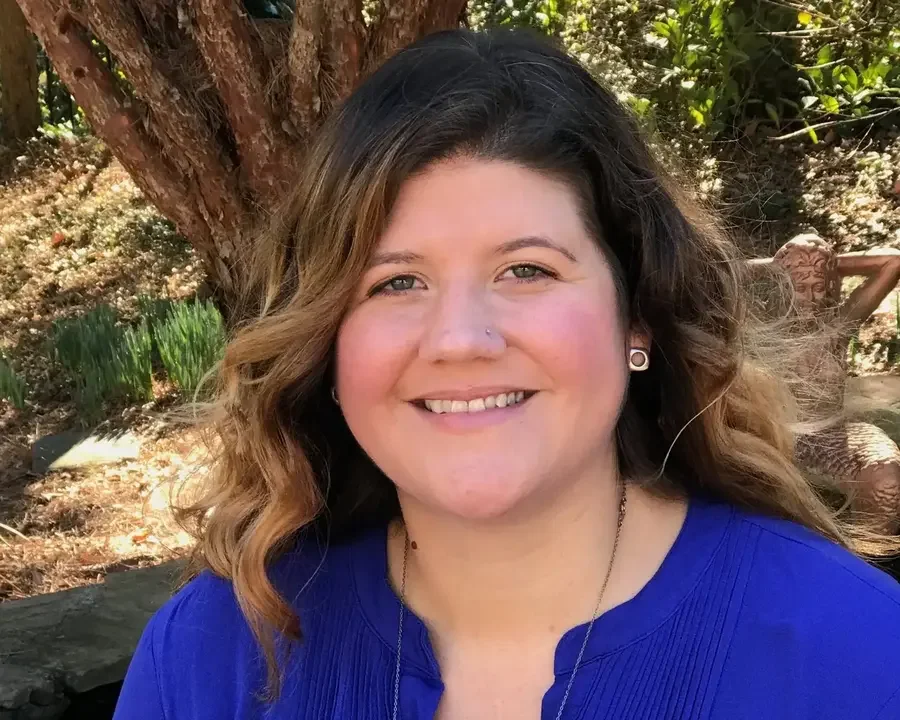
EMDR Intensive Therapy at Resilient Counseling
Want to know more about EMDR?
-

About EMDR
-

About Amanda
-

Pricing & Details
-

Financing Options
-

Preparing for EMDR
Accelerated Healing for Trauma, Anxiety, and PTSD
If you’ve been carrying the weight of trauma, anxiety, or overwhelming emotions and feel like weekly therapy just isn’t enough, EMDR Intensive Therapy can help. At Resilient Counseling, I offer extended EMDR sessions designed to help you move through pain more efficiently and reclaim your resilience.
What Is an EMDR Intensive?
An EMDR Intensive is a focused block of therapy-lasting a half, full or multiple day(s)-using Eye Movement Desensitization and Reprocessing (EMDR). Instead of spreading sessions out weekly, intensives give you the time and space to process deeply in a safe, supported environment.
This approach can be especially effective for:
Trauma healing (childhood trauma, complex trauma, PTSD)
Anxiety, panic attacks, and intrusive thoughts
Grief, loss, and life transitions
Stress and burnout
Attachment wounds and relational trauma
By condensing therapy into fewer, longer sessions, clients notice breakthroughs and relief more quickly than with traditional weekly therapy.
Benefits of EMDR Intensives
Accelerated results. Many clients experience in one or two days what take months of weekly sessions.
Focused attention. We dedicate uninterrupted time to your healing.
Convenience. Intensives work well if your schedule doesn’t allow for ongoing weekly therapy.
Integration. You’ll leave with tools and support to continue your healing journey.
How EMDR Intensive Therapy Works
Your intensive is personalized for your needs, but generally includes:
1. Pre-Intensive Intake (90 minutes)
We’ll explore your history, symptoms, and goals, making sure this format is right for you.
2. Intensive Day(s)
Half-day (6 hours) or full-day (9 hours with breaks and lunch) sessions using EMDR therapy to target stuck memories, triggers, or beliefs.
3. Post-Intensive Follow-Up (90 minutes)
We’ll review your progress, help you integrate insights, and plan next steps.
You’ll also receive a personalized workbook to guide you before, during, and after your intensive. In addition, yoga, sound healing, kintsugi and other therapy modalities and techniques can be incorporated into your intensive.
I also offer Adjunctive EMDR Intensives for clients who already have a therapist but want to focus specifically on trauma processing. This means you keep seeing and working with your primary therapist and we set up a block of time mostly (usually 3 hours) to focus on trauma processing.
Locations & Availability
I provide EMDR Intensives in person in Georgia and Florida and virtually for clients in Georgia, Florida, and South Carolina. Flexible scheduling is available, including evenings and weekends (Please note that evenings and weekends are charged a premium fee.) Additionally, my office in Coconut Creek, FL offers a wonderful retreat style vibe as it is near the ocean.
Is EMDR Intensive Therapy Right for You?
An EMDR Intensive may be a good fit if:
Weekly therapy feels too slow or fragmented
You’re motivated and ready for change
You feel weighed down by trauma, anxiety, or distressing memories
You want to create momentum and experience faster relief
Invest in Your Healing
EMDR Intensive Therapy is a meaningful investment—financially, emotionally, and personally. By dedicating time to focus solely on you, you can experience relief and transformation in a way that traditional therapy may not provide.
Take the Next Step
If you’re ready to explore EMDR Intensive Therapy in Georgia, Florida, or South Carolina, let’s connect. I’ll answer your questions, help you explore whether this is the right approach, and guide you toward the healing you deserve.
Contact me to schedule a consultation and begin your path to resilience.
Amanda Marks: EMDR Therapist
Amanda is trained in and has been providing EMDR for several years. She participates in ongoing EMDR consultation and training in advanced topics such as complex trauma, attachment, somatics and dissociation. She has treated several therapists around Atlanta with issues related to Imposter Syndrome and trauma with the use of EMDR. She is also an active member of EMDRIA.
Amanda takes a unique and individualized approach with EMDR. She incorporates various other modalities including the use of yoga, art, Polyvagal Theory, Somatic Therapy and Attachment Therapy in her EMDR sessions.
She collaborates with each client on developing a plan to best implement EMDR, and if working as a part of a treatment team, she is highly collaborative with other professionals, including physicians, dietitians and other therapists.
Pricing & Details
Half Day
Intensive
$1750
6-hour program
Included in the program is a customized workbook designed to help you prepare for the Intensive
More Information below
Full Day
Intensive
$2000
9-hour program
One-hour lunch break (off-site)
Included in the program is a customized workbook designed to help you prepare for the Intensive
More Information below
Explore Our EMDR Intensive Programs and Flexible Financing Options
About EMDR Intensives
EMDR Intensives offer two program lengths:
Half-day program lasting 6 hours
Full-day program lasting 9 hours
Each program begins with a 90-minute intake session scheduled at least one week prior to the main session. After completing either a 3-hour or 6-hour intensive session, you will have a 90-minute follow-up approximately one week later to discuss progress, make future recommendations, and more. Included in the program is a customized workbook designed to help you prepare for the Intensive. This workbook contains assessments and activities and serves as a record of your treatment goals and progress before, during, and after the sessions.
Program Options and Pricing:
Half-Day Intensive (6 hours): $1750 for the initial half-day.
Additional Half-Day Weekday Sessions: $600 for an additional 3-hour session
Full-Day Intensive (9 hours): $2,000 for the full day, including a one-hour lunch break (off-site)
Additional Full Day Weekday Sessions: $1300 per day (6 hours each)
These programs are available in-person in Georgia or Florida, or virtually in GA, SC and FL, with a hybrid option combining both. Sessions can be scheduled during weekends and evenings to accommodate your needs but will be subject to a premium fee.
Financing Options
Special financing is available through CareCredit and PayPal.
CareCredit Financing:
6 Months Deferred Interest: Deferred interest if paid in full within 6 months.
Reduced APR with Fixed Monthly Payments: Available for purchases of $1,000 or more, with fixed monthly payments until paid in full.
Please note that clients must apply for a CareCredit credit card or PayPal Credit, and terms are set by CareCredit and/or PayPal. We accept CareCredit and PayPal for the above financing options.
Customized Payment Estimates: We can provide a customized payment estimate to help you determine the best financing option for your needs.
EMDR Frequently Asked Questions
-
EMDR, or Eye Movement Desensitization and Reprocessing, is a type of therapy used to treat a variety of issues including trauma, anxiety, depression, imposter syndrome, feeling not good enough, attachment and relationship wounds from childhood and adult, among other issues.
-
No! EMDR and hypnosis are very different. With EMDR, you are completely awake and aware during the entire session. You are also in complete control of the session and can start and stop at any time. There is no altered state and it just facilitates the natural healing process of your brain, releasing of what we don’t want or need and strengthening what we do want and need!
-
Yes, you can find more EMDR resources and research, here.
-
No, you want to make sure someone providing EMDR is fully trained or certified in EMDR by an EMDRIA approved training. This is a specialized treatment.
-
Like all types of therapies, things can often get more difficult and challenging before they get better. The same can happen with EMDR. It can be difficult to face the things that we have been trying to forget for so long and that can result in some distressing or unpleasant feelings, but only for a short time.
-
No! That is a great thing about EMDR! We don’t have to share our trauma story… "Reprocessing" means setting up a learning state that will allow experiences causing problems to be "digested" and stored appropriately in your brain. That means that what is useful to you from an experience will be learned and stored with appropriate emotions in your brain and can guide you positively in the future. The distressing emotions, beliefs, and body sensations will be discarded. Negative emotions, feelings, and behaviors are generally caused by unresolved earlier experiences pushing you in the wrong direction. The goal of EMDR therapy is to leave you with the emotions, understanding, and perspectives that will lead to healthy and useful behaviors and interactions.
Preparing and Engaging in EMDR: What to Expect in Your Therapy Sessions
EMDR has 8 phases: initial history discovery and treatment planning, preparation, assessment, desensitization, installation, body scan, closure, and reevaluation.
-
In the initial sessions, we'll discuss your goals and work on improving your ability to manage distress. Amanda will use the "window of tolerance" concept to help you expand your capacity to handle stress. You'll also receive education about trauma. This phase, called "resourcing," ensures you're prepared for the later stages of EMDR.
-
When you're ready, you'll focus on a specific event. We'll address a negative image, belief, emotion, and body feeling related to the event, and then shift to a positive belief indicating resolution.
-
While you focus on the upsetting event, Amanda will guide you through sets of side-to-side eye movements, sounds, or taps. You'll notice what comes to mind after each set, experiencing shifts in insight or changes in images, feelings, or beliefs regarding the event.
-
Yes, you have complete control and can stop at any point if necessary. The sets are repeated until the event becomes less disturbing.
-
Yes, EMDR therapy can be used within standard talking therapy, as adjunctive therapy with your current primary therapist, or in an intensive format.



